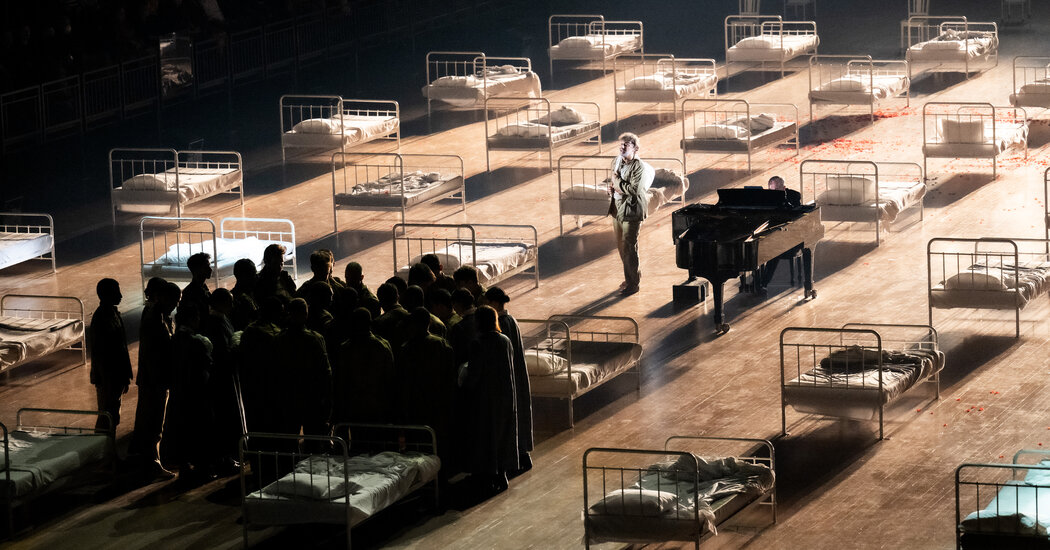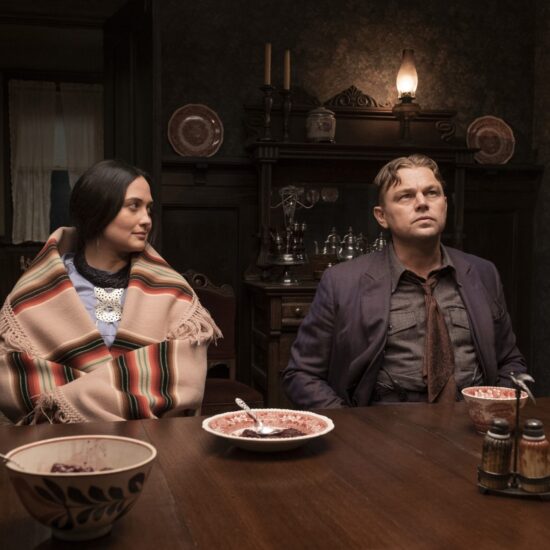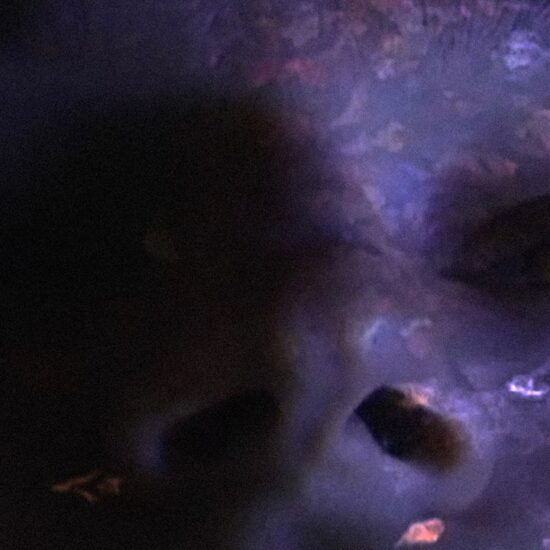
In the classical tradition, a song often evokes intimacy and solitude: a poet baring vulnerability, a composer painting a miniature. That sense of seclusion extends to the performance as well: a singer and pianist alone onstage, a listener absorbing the work in an intimate recital hall or immersed, alone, with headphones.
These conventions surround the final group of songs written by Schubert, known as “Schwanengesang” (Swan Song) and published after the composer’s death in 1828 at age 31. But those expectations were upended in “Doppelganger,” which had its world premiere Friday at the cavernous Park Avenue Armory Drill Hall. The director Claus Guth, the star tenor Jonas Kaufmann, the pianist Helmut Deutsch and a raft of collaborators transformed “Schwanengesang” at the Saturday night performance into an entire wartime narrative.
Kaufmann is a soldier who lies dying in a military hospital. Far from being alone with Deutsch onstage, he is one of nearly two dozen injured and sick soldiers being tended by a fleet of six nurses, the rest of the cast is made up of dancers. Deutsch and the piano are dead center among more than 60 hospital beds that stretch across the hall’s immense floor. Kaufmann’s soldier spends the last hour of his life revisiting his memories in a cascade of Schubert’s songs, stitched together with ominous new music by the German composer Mathis Nitschke.
Guth’s imaginative and powerful staging for his New York debut recalls history. This drill hall has served as a hospital and shelter; “Doppelganger,” which had originally been intended for a fall 2020 premiere, also invokes the field hospitals hastily erected at the start of the coronavirus pandemic.
Michael Levine’s inventive and minimalistic set design is dominated by the blanched shades of hospital whites and khaki uniforms. Growls of Nitschke’s sound and clever lighting by Urs Schönebaum suggest thunderstorms and bombings.
Does the theatrical conceit serve Schubert’s songs? In the hands of Kaufmann and Deutsch, who have long worked together, yes — and it reignites the master’s music in a fresh, intelligent setting without sacrificing the duo’s artistry as classical performers.
At one point, the piano becomes a main character in the drama, as Kaufmann and the dancers gather to listen in respite to Deutsch perform the second movement of Schubert’s Piano Sonata in B-flat Major, D. 960. It was a rare treat to hear Deutsch, who usually performs an accompanist, take literal center stage.
In a concession to the Armory’s sheer expanse, Kaufmann’s voice was lightly amplified. This was occasionally distracting when he turned his head away from his microphone, and his normally crisp articulation was slightly muddied. But Kaufmann’s sweet tone transcended the limits of the technology, particularly in Schubert’s yearning song of desire “Ständchen.”
In the evening’s climactic song, “Der Doppelgänger,” Kaufmann’s soldier encounters his ghostly twin at the moment of death. Although the audience knows this was coming, having already seen the soldier being mortally wounded, the theatrical ingenuity and visceral force of “Doppelganger” was so strong that the audience let out an audible gasp of shock. When was the last time you heard something like that in a classical concert hall?
Doppelgänger
Through Thursday at the Park Avenue Armory, Manhattan; armoryonpark.org.













